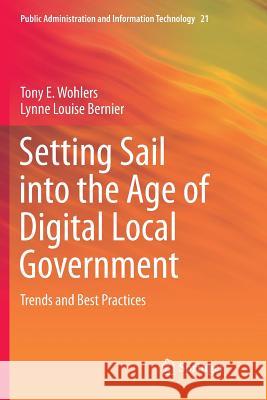Setting Sail Into the Age of Digital Local Government: Trends and Best Practices » książka
topmenu
Setting Sail Into the Age of Digital Local Government: Trends and Best Practices
ISBN-13: 9781493979455 / Angielski / Miękka / 2019 / 123 str.
Kategorie:
Kategorie BISAC:
Wydawca:
Springer
Seria wydawnicza:
Język:
Angielski
ISBN-13:
9781493979455
Rok wydania:
2019
Wydanie:
Softcover Repri
Ilość stron:
123
Waga:
0.20 kg
Wymiary:
23.39 x 15.6 x 0.74
Oprawa:
Miękka
Wolumenów:
01
Dodatkowe informacje:
Wydanie ilustrowane











